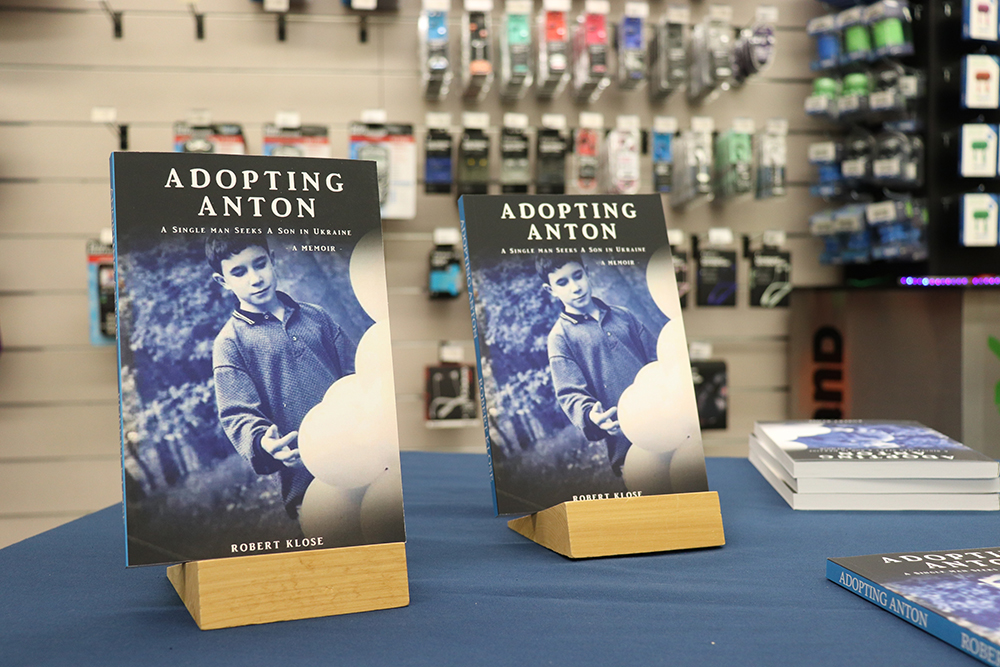Worldwide effort towards aid for Ukraine continues as a year has passed since Russia’s infliction of war on Feb. 24, 2022. The University of Maine hosted Professor Robert Klose on Feb. 22 to discuss his experience with adopting a son from Ukraine.
On Thursday, an array of Ukrainian flags were raised outside of European Union (EU) institutions in Brussels. Citizens of Ukraine and international allies remain mournful of the many lives lost and hope for imminent security within the nation.
Throughout the largest military conflict that Europe has seen since WWII, lives have been devastated and Russia has become isolated from the West. Moreover, these conflicts have further contributed to international economic crises.
President Volodymyr Zelensky predicts that victory for Ukraine is forthcoming, as long as the contribution of weaponry and other aid from allied forces prevail.
According to National Security Advisor Jake Sullivan, Russia has not and will not be successful in its objective of wiping Ukraine off the map or absorbing the country into Russia. Ukraine and its allies continue to fight for territorial integrity and the restoration of internationally recognized borders.
The United Nations General Assembly (UNGA) convened on Feb. 23, 2023, and held a vote which established that the vast majority of nations remain in favor of Moscow’s withdrawal of all military forces from Ukraine as a necessary resolution.
The results were 141-7 with 32 UN Member States abstaining. Needing only a two-thirds majority, it became clear that the international community remains adamant about justice for Ukraine and the diminishment of Russian war efforts.
The last vote, taken shortly after the annexation of republics in the east of Ukraine, resulted in 143 countries in favor and five against. The general agreement between nations that Russia must be reprimanded for its violence and violation of law has yet to waver after a full year of conflict.
Throughout the year, Congress has shown unanimous support for providing Ukraine with massive amounts of financial and military aid packages. However, members of the Republican Party in the United States have begun opposing the continuation of measures to such an extent, as it is costly.
Others have claimed that U.S. aid to Ukraine is not an act of charity but a preservation of global interests because the U.S. has such strong international ties. The state of our own nation is deeply intertwined with the security and stability of Europe.
University of Maine Professor Robert Klose held a talk at the UMaine Bookstore on Wednesday in accordance with his recent novel “Adopting Anton.” Klose’s other books include: “Adopting Alyosha,” “Life on Mars,” “The Legend of the River Pumpkins,” “Long Live Grover Cleveland,” “The Three-Legged Woman” and “Small Worlds.”
Klose adopted his first child, Alyosha, from Russia following the collapse of the Soviet Union and his second, Anton, from Ukraine shortly after 9/11. He provided the audience with a detailed account as to the trials and tribulations of international adoption as a single male.
Klose traveled to Russia amidst a time of tremendous chaos and uncertainty. He described the first adoption as wild and unpredictable but ultimately successful.
While searching for a much smoother second adoption process, Klose learned that Ukraine would be the easiest because, at that point in time, it was open. Although the adoption agencies in the U.S. are lenient about allowing single parents to participate, there are oftentimes more conservative restrictions for doing so in other cultures as a result of the engraved traditional familial roles for women.
Klose flew to Warsaw, then took an 18-hour train trip to Kyiv where he arrived at a National Adoption Center.
The boy was a 12-hour train ride away in an orphanage on the Black Sea. Anton was very shy and was said to cry around new people. However, upon the first encounter, he and Klose developed a special connection. The women at the orphanage had never seen him react to a stranger that way.
Unfortunately, the provincial judge in Kyiv utilized her power of office to prevent the adoption from taking place. Klose was given another option by his lawyers.
“They said you have two choices; you could either come back to Kyiv and start over or we fight. I said we will fight,” Klose said.
With a multitude of Ukrainian women advocating for Klose’s adoption by writing to the judge and sending her gifts, outside pressure grew strong and she agreed to speak with him.
The judge first asked Klose who would cook for the child and who would talk to his teacher. He responded by saying that it is not uncommon for men to cook in the U.S. and that he himself is a teacher and will be able to speak to them regarding Anton.
“The judge asked why I would want another child. I said ‘Alyosha would like to have a little brother, I would like to have a son and Anton needs a family, it seems perfect,’” Klose said.
All of the women he met there lined up in court to speak on his behalf. The judge cried and agreed to let him adopt, but only after a 30-day waiting period. Klose returned to the U.S. but made sure that Anton was visited weekly by Marina and plastered the wall with photos of his home in the U.S.
“As you may have heard, Americans may no longer adopt from Russia, and singles may no longer adopt from Ukraine—I was just in the right place at the right time to get these boys out of those countries,” Klose said.








